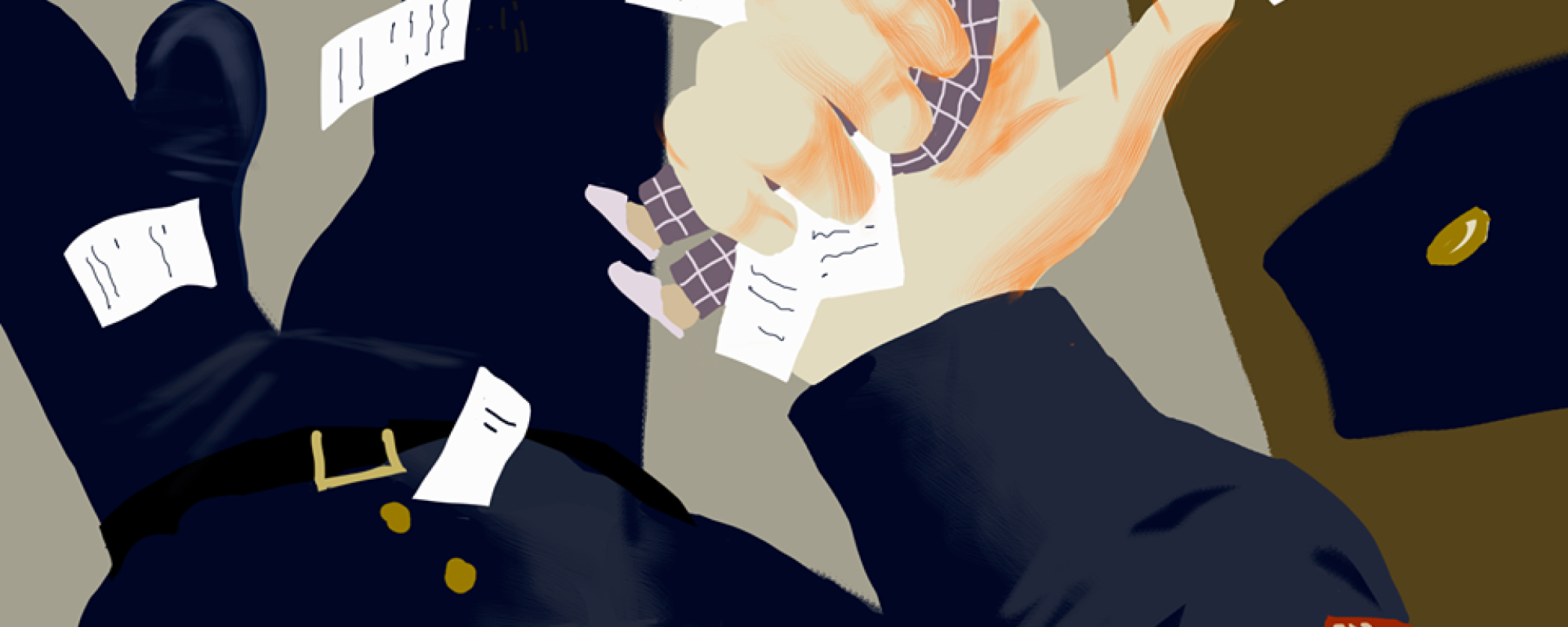On the evening of March 7th while detainees were being held at police stations nationwide for their participation in anti-war protests, Alexei Kalugin, a lawyer working with OVD-Info was roughed up by police at Station 31 in St. Petersburg.
Kalugin arrived at Station 31, along with his colleague Sergei Podolsky, who also works with OVD-Info, to represent the interests of one of the protestors being held there. Both lawyers had identification and orders with them.
The officer on duty refused them entry into the station, citing an order from his superiors. The lawyers responded that they wanted to write a complaint about the officers’ wrongful conduct. The duty officer said he would come out to talk to them. After a while, the officer did indeed come out to talk, but demanded that Kalugin stop filming, despite the fact that, at that moment, the lawyers were outside the gates of the station. The officer started to rough up Kalugin: knocking the telephone out of his hand and twisting his arm so that he would stop filming. After that, the officer tried to handcuff Kalugin but was unable to do it alone. Another officer came running to help him and pinned Kalugin up against the gate. They then took him into the station. According to the lawyer, the handcuffs were put on completely unprofessionally: one hand was facing up, one was facing down and the handcuffs left marks on his wrists.
Kalugin was in handcuffs for 15 minutes. At that point, the other lawyer Sergei Podolsky, who they also let into the station, requested that they take Kalugin to the office of the commanding officer. The commanding officer ordered the handcuffs to be removed, but still obstructed the lawyers’ work. He accused Kalugin and Podolsky of defending Nazis and of abetting them, threatening them both with criminal prosecution for using violence against a state agent (Criminal Code Article 318) and insulting an officer (Criminal Code Article 319).
The commanding officer then demanded that Kalugin delete the video from his phone, which he did, though it was later restored. The commanding officer allowed Podolsky to help his client only after the video was deleted, and threatened to cite Kalugin for failure to obey the police (Administrative Code Article 19.3). This all remained at the level of threats and they released the lawyers.
Since February 24th, we have been following the mass arrests stemming from daily anti-war protests. Police have frequently used force during arrests. On March 6th alone we documented dozens of situations of severe beatings. In several instances, there was serious trauma—several detainees had their skulls fractured, others had sprained ligaments or dislocated shoulders. According to our observations, the police in St. Petersburg have been particularly «zealous», including several instances of using tasers during arrests. We are also aware of many violent incidents in other cities like the torture of detainees in the Brateevo police station in Moscow.
Unfortunately, the use of violence against peaceful protestors is not news for us. Police use violence, including beating people, to break up almost every large event not authorized by local authorities. In all our years of observation, we have not heard of a single situation where law enforcement personnel have been held legally responsible for their behaviour. Just the opposite, in fact. Protest participants are the ones being prosecuted for using violence—most often because they tried to defend themselves or stood up for someone else.



